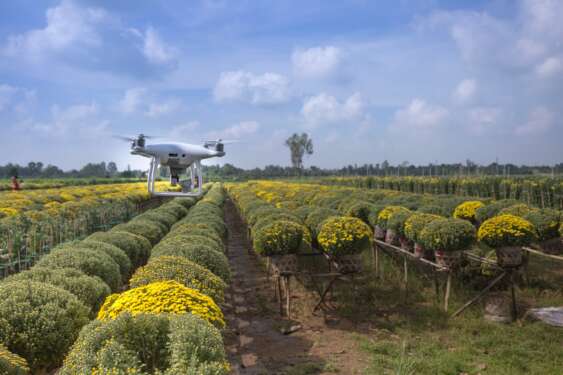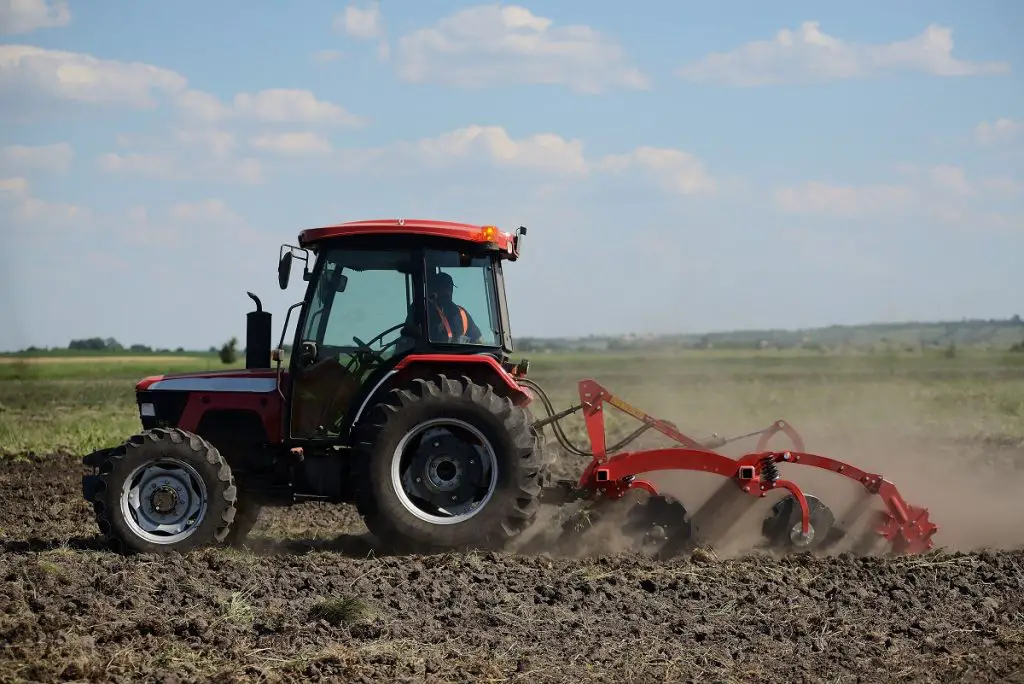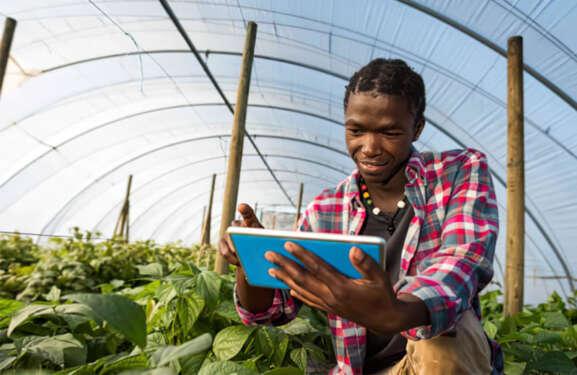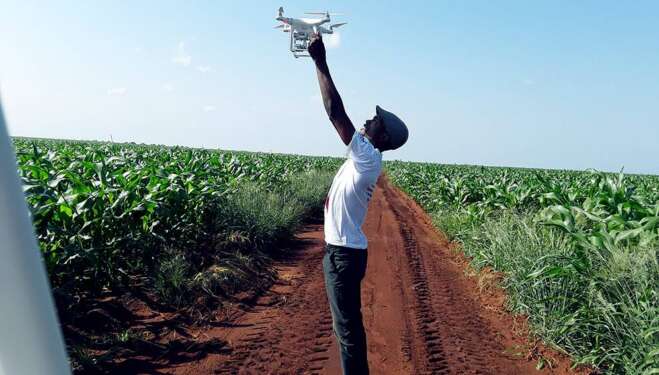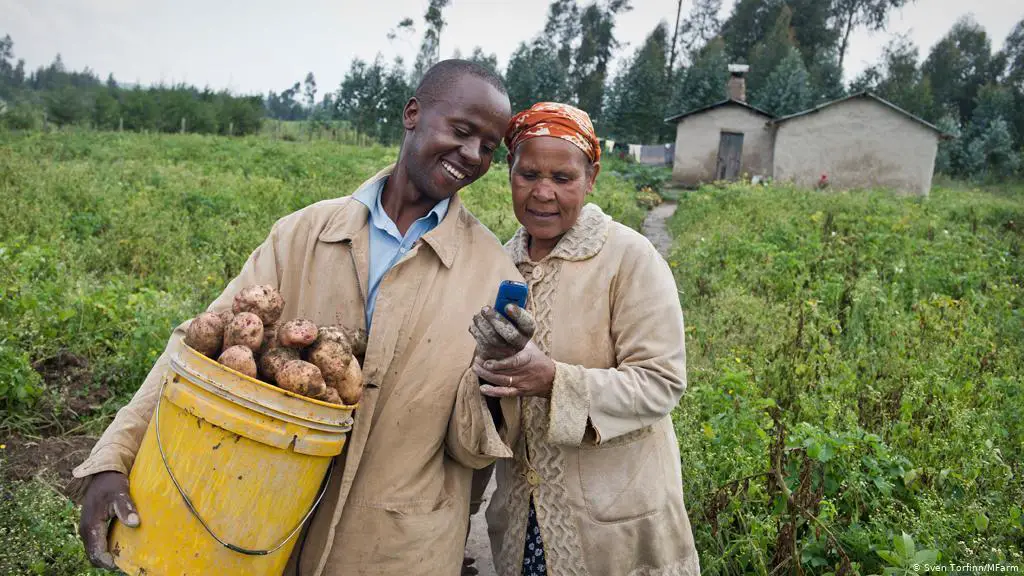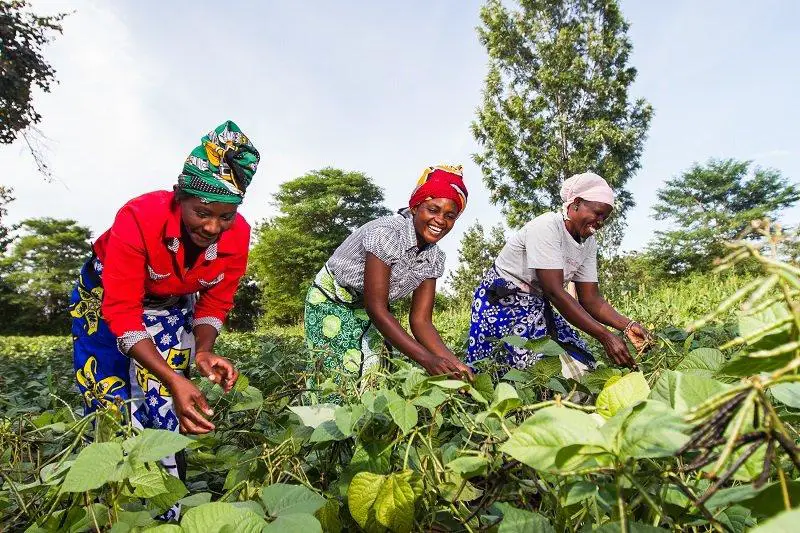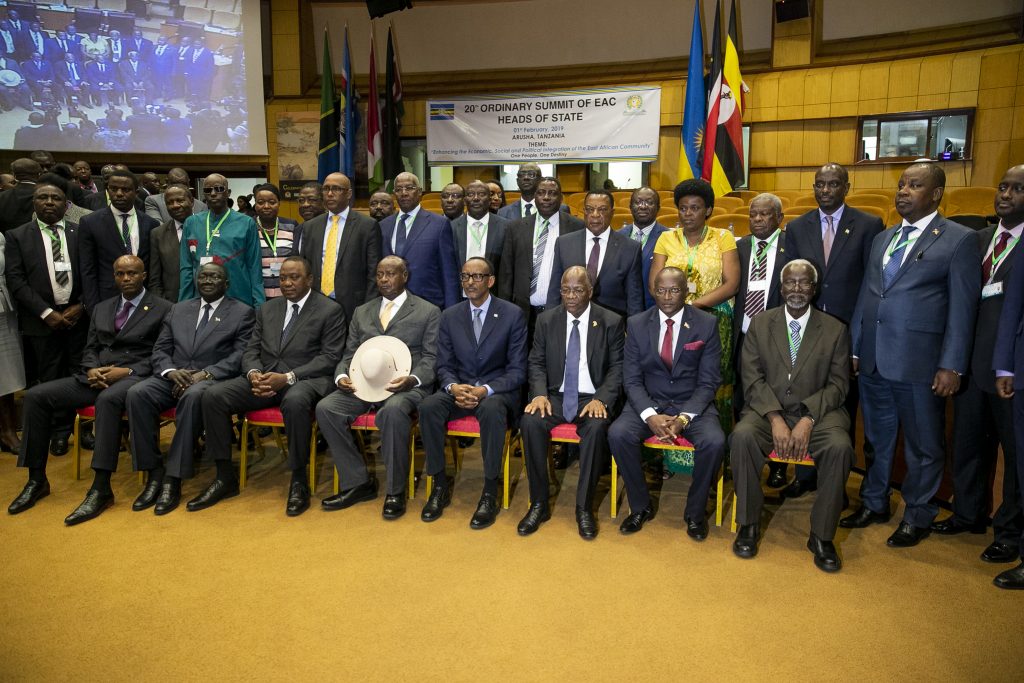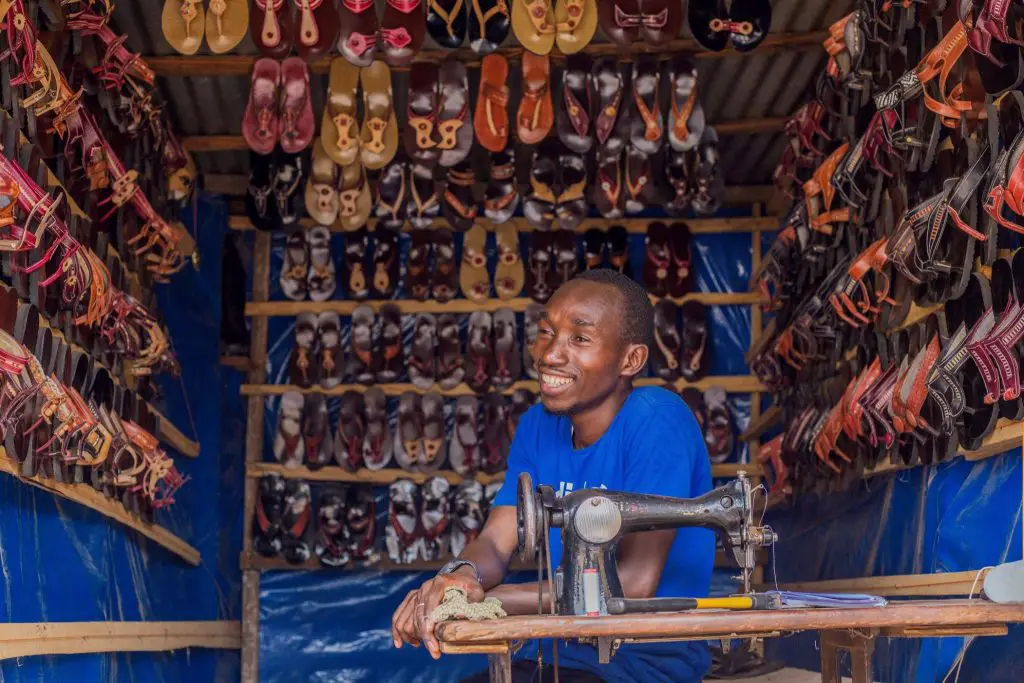- Abu Dhabi radiates optimism as over 300 startups join AIM Congress 2024
- TLcom Capital Raises $154 million in Funding to Boost Its African Growth
- Africa’s $824Bn debt, resource-backed opaque loans slowing growth — AfDB
- LB Investment brings $1.2 trillion portfolio display to AIM Congress spotlight
- AmCham Summit kicks off, setting course for robust future of US-East Africa trade ties
- Why the UN is raising the red flag on the UK-Rwanda asylum treaty
- Portugal’s Galp Energia projects 10 billion barrels in Namibia’s new oil find
- Wärtsilä Energy offers tips on how Africa can navigate energy transition and grid reliability
Browsing: Agriculture
Small and historically disadvantaged businesses in the rural town of South Africa have all reasons to smile after the Treasury in the Free State established the Provincial COVID-19 Relief Task Team to assist in assessing the challenging business environment that was widely affected by the Covid-19 pandemic.
The Free State Black Business Chamber [FSBBC] was launched by the Department of Economic, Small Business Development, Tourism and Environmental Affairs (DESTEA] with an aim of ensuring among other things, the realization of a unified representative voice of black business in the Free State Province
The move by Treasury was well received by the Free State Black Business Chamber acknowledging of the good will saying that it was pleased that the government prioritized key interventions towards the revival of small businesses in the province.
ALSO READ: What banks stand to benefit from ARB Apex Bank’s partnership with GSCC
The team that was established …
The third cohort of the One Planet Fellowship has been announced. The fellowship under investing in the next generation of African scientists, African Women in Agricultural Research and Development (AWARD) targets high potential scientists in a career acceleration process.
According to a statement from the firm, the US$19.2 million One Planet Fellowship seeks to invest in over 630 agricultural scientists, fostering their leadership expertise, strengthening their research skills, including integrating gender into their work, and catalyzing partnerships in Africa and between Africa and Europe. Since launching the inaugural call in 2019, AWARD has received over 2400 applications and, to date, 89 outstanding scientists from 14 African countries have been offered the One Planet Fellowship.
Selected candidates participate in an intensive, three-year non-residential, career acceleration process and those who complete it will become One Planet Laureates. “The One Planet Fellowship has made me appreciate the critical role of women in science …
The agricultural sector is considered one of the most critical industries for the African continent due to its economic potential. There has been significant growth in the past two decades leading to a level of production three times higher than before, and the sector is projected to become a US$1trillion industry in sub-Saharan Africa by 2030. However, despite this increase, the African continent is still a net importer of agricultural commodities to meet its population’s basic food needs.
Nearly 600 million hectares of uncultivated arable land is in Africa; this shows that there is a lot of untapped potential in African Agribusiness.
Boosting Agriculture Through Technology
The application of technological innovations in Agribusiness is vital in sustainably boosting productivity, increasing profits, and ensuring food security in the continent and beyond.
Mobile Phones
The foremost benefit of using mobile phones is as a platform for exchanging information through calls, SMS, or …
Until early 2019, Omar al-Bashir was the President of Sudan after holding the position from June 30, 1989, to April 11, 2019.
For the three decades he was president, the country had not witnessed an uprising over food in the scale as huge, and widespread until 2018 when the country erupted in violence over the price of bread.
So dire was the need for bread which was unavailable that people could go for days without bread. Not because they could not afford it but because it was simply not there.
Read: Will digital agriculture bring economic development to Africa?
This scenario sounds like a scene from a movie but it is the reality facing many African countries.
The lack of food is getting worse every passing year due to several factors including poor seeds and the ravaging effects of climate change and soil degradation. With the continent whose agriculture is …
It is with great joy and pride to say Africa is mounting the digitalization hill and none of the 54 countries seems to tire of the climb. From the emergence of mobile money in East Africa to the use of drone technology in monitoring farmland activities in Ghana, all seem as ground-breaking as the other digital operations executed in Africa.
Through the years East Africa has seen a surge in fintech exceeding expectations; services such as M-Pawa in Tanzania, M-Shwari and M-Pesa in Kenya (offered by Vodacom Tanzania and Safaricom Kenya respectively) has not only digitalized financing en masse for the unbanked but enabled digitalization in East Africa to soar to new heights.…
The 2020 edition of the AfDB Agripitch contest for African agricultural entrepreneurs kicked off on 2 November 2020. The competition pits young entrepreneurs with a focus on agriculture, dubbed Agripreneurs.
The contestants will exhibit startups plans from their respective businesses in an attempt to win seed funds up to a total of $120 000 as well as mentoring and training opportunities.
The prize money will be shared by the different winners of each category. Two of the categories are broken down according to the stage of the business with one category featuring early startups, the other for the mature startup phase. The third category is reserved for women empowered businesses.
The Agripitch competition will run in two segments including a series of webinars and a boot camp for selected entrepreneurs. The boot camp will see the business owner receive training on a number of key business shares including product development, …
It is unfair to mention African development pillars without mentioning the agriculture sector which employs nearly half of the population of sub-Saharan Africa (SSA).
The sector has enormous benefits to the continent, where farmer-centred organizations such as AGRA (Alliance for a Green Revolution in Africa) argue that nearly one-half of the young population is involved in the continent’s 60 million farms.
It is with no doubt that African farms stand to be the next profitable food market suppliers of the world.
“Out of total urban food sales of roughly US$200 to US$250 billion per year, over 80 per centcomes from domestic African suppliers,” according to AGRA.
Nearly 23 per cent of SSA’s GDP comes from agriculture (McKinsey, 2019); the sector is responsible for providing decent income, growth and poverty reduction for SSA.
The region’s food market was valued at $300 billion in 2017 and it could be …
Standard Bank and UN Women have come together to equip African women in agriculture with skills and resources to grow their businesses for long term success.
In October last year, the two organisations partnered to empower more than 50,000 women in South Africa, Uganda, Malawi and Nigeria through modern and environmental friendly farming technologies that increase incomes and productivity.
Local farmer organisations and cooperatives, women farmers and authorities are now able to address structural inequalities in rural economies in Africa, beginning with difficulties that women face in securing tenure for quality farmland through the Climate Smart Agriculture (CSA) collaboration.
Funding worth $3 million has been provided by Standard Bank as well as ongoing support through financial literacy and other programmes.
“The CSA project supports Standard Bank’s drive to create a gender-equal Africa and aligns with our purpose of driving the continent’s growth. We believe it will meaningfully contribute to the …
After much back and forth that caused enormous delay, the East African Community (EAC) has passed a 97.6m US dollars budget for the next financial year.
Of the total amount, 55.6m US dollars will come from EAC partner states, while development partners will contribute 41.9m US dollars.
The budget reflects the region’s top priority areas which can be shortlisted to about seven areas. During the next financial year, the community will focus on Consolidation of the Single Customs Territory (SCT) to cover all imports and intra-EAC traded goods, including agricultural and other widely consumed products.
It will also cover infrastructure development including the enhancement of free movement of all factors of production as declared under the Common Market and Monetary Union Protocols.
Another focus area is the enhancement of regional industrial development through investment in key priority sectors like skills development, technological advancement and innovation to stimulate economic development.…
It is legal to say the world as we know it has been kidnapped by the novel coronavirus, which has left thousands dead and millions who have contracted it. The United Nations Industrial Development Organization (UNIDO) confessed that “the economic crisis unleashed by the outbreak of COVID-19 is hurting economies, regardless of income level”.
According to its latest numbers, UNIDO indicated that both lower and upper–middle-income countries have been significantly impacted by COVID-19, with an average loss in industrial production across countries, standing at 18 per cent (high-income), 24 per cent (upper middle-income) and 22 per cent (lower middle-income).
The pandemic has hurt a lot of economies but more importantly has taken a toll in some developing countries, such as Kenya and Tanzania who rely on travel and tourism dealing a huge slap on foreign receipts.
The World Bank …







